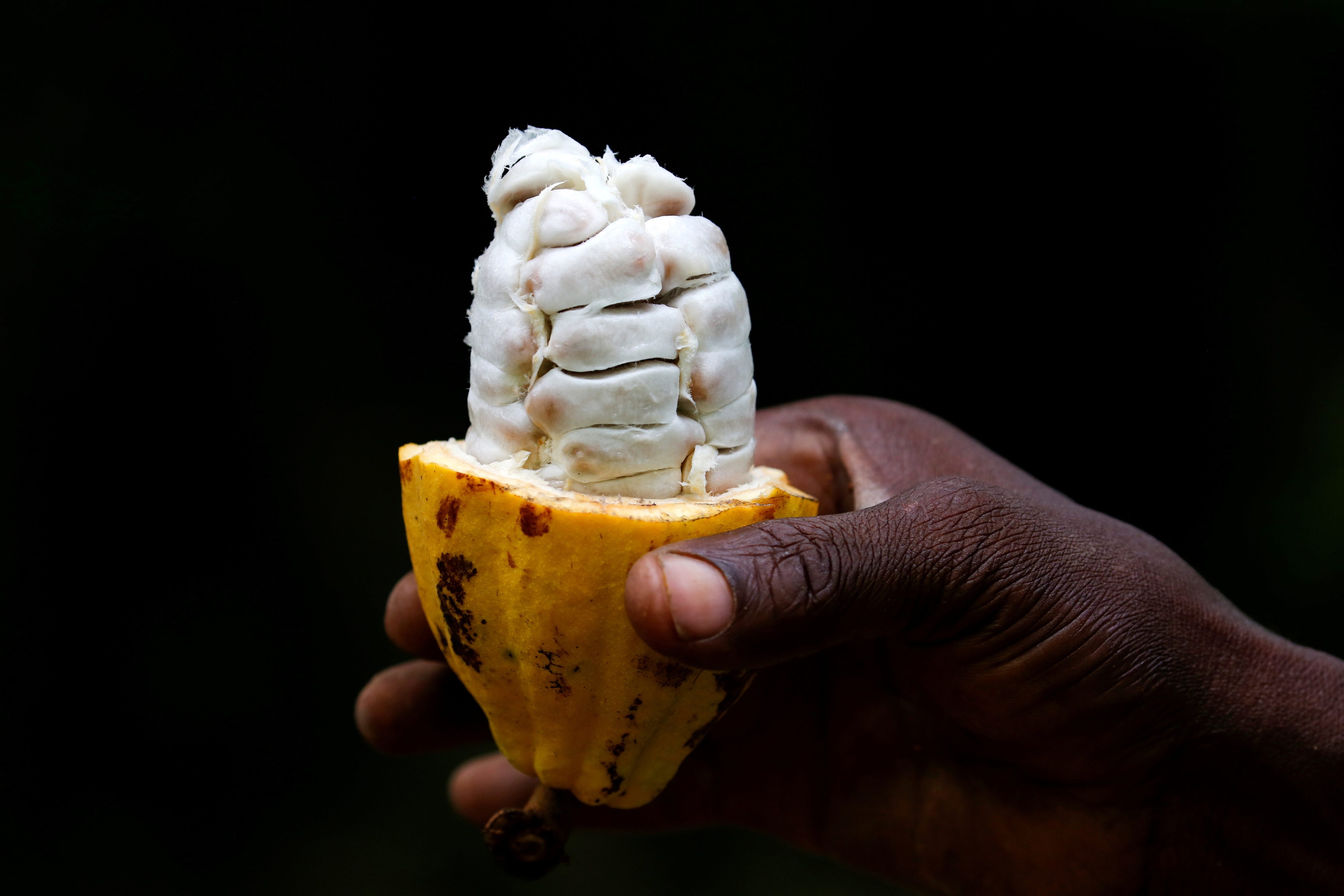SUMMARY
This is AI generated summarization, which may have errors. For context, always refer to the full article.

Chocolate and cocoa companies are tracing where more of their cocoa beans come from, as pressure mounts on them to buy beans from growers who are not linked to deforestation or human rights abuses, data from the World Cocoa Foundation (WCF) shows.
The industry group said companies can now trace or locate the origin of 74% of the beans in their direct supply chain in top cocoa producer Ivory Coast, and 82% of their directly sourced beans in No. 2 producer Ghana.
Directly sourced cocoa accounts for about half the beans that cocoa and chocolate companies source, while an indirect supply chain – consisting of unaffiliated exporters, traders, and farmers – accounts for the other half.
Traceability, which includes measures like GPS mapping and satellite monitoring of farms in order to prevent deforestation, is far more difficult in an indirect chain that includes many middlemen unaccountable to the final bean purchaser.
“To address indirect sourcing through middlemen, Côte d’Ivoire and Ghana have both launched national systems to achieve full traceability of the entire cocoa supply chain,” said the WCF.
Alain-Richard Donwahi, minister of water and forests in Ivory Coast, said establishing a national cocoa traceability system and national forest monitoring was “an important challenge to be addressed.”
Ivory Coast and Ghana are also under pressure to clean up their cocoa sector because the European Union, their biggest customer, is set to propose legislation aimed at preventing the import of commodities linked to deforestation and human rights abuses.
If the legislation is adopted, it could come into effect as early as 2024.
Ivory Coast exports 67% of its cocoa to Europe and its cocoa sector represents 25% of the economy.
Its government has called for increased support from the EU and other donors to help implement the proposed legislation, including a request for more than 2 billion euros ($2.40 billion) to fight deforestation.
WCF represents more than 80% of global cocoa and chocolate companies, including majors like Barry Callebaut, Nestle, and Mondelez. – Rappler.com
$1 = 0.8333 euros
Add a comment
How does this make you feel?
There are no comments yet. Add your comment to start the conversation.